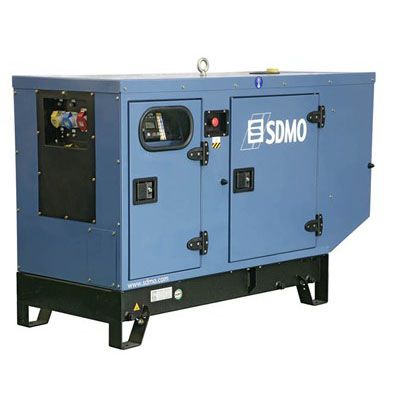The effectiveness and reliability of your backup generator is directly tied to its maintenance. This blog explores the critical importance of regularly maintaining your generator, emphasising the role it plays in ensuring a reliable power backup and safeguarding against unexpected outages.
Generators serve as a crucial lifeline during power outages, emergencies, or in areas with unreliable electrical grids. Whether in residential settings, commercial establishments, or industrial facilities, the generator's ability to provide uninterrupted power hinges on one key factor: regular and thorough maintenance.
Best Practices for Generator Maintenance:
To maximise the benefits of generator maintenance, consider the following best practices:
- Scheduled Inspections: Establish a routine inspection schedule to check for wear and tear, fluid levels, and potential issues.
- Oil and Filter Changes: Regularly change the oil and filters as per manufacturer recommendations to maintain optimal engine performance.
- Load Testing: Conduct load tests periodically to ensure the generator can handle the expected load without issues.
- Fuel System Inspection: Regularly inspect the fuel system for leaks, and ensure the fuel is clean and suitable for use.
- Cooling System Maintenance: Check and clean the cooling system components, such as radiators and coolant levels, to prevent overheating.
Top Reasons Why Generator Maintenance Matters:
- During emergencies or power outages, a generator must start promptly and operate seamlessly. Regular maintenance ensures that all components are in optimal condition, reducing the risk of failures when the generator is needed the most.
Extended Lifespan:
- Just like any piece of machinery, generators have a finite lifespan. Regular maintenance, including oil changes, filter replacements, and overall system checks, can significantly extend the life of your generator, protecting your investment and ensuring long-term reliability.
Fuel Efficiency:
- Efficient fuel consumption is a key aspect of generator operation. Regular maintenance, such as cleaning and tuning, helps to optimize fuel efficiency, reducing operational costs and environmental impact.
Preventing Costly Repairs:
- Neglecting maintenance can lead to minor issues escalating into major problems. Routine checks and preventive measures can identify and address potential problems early on, preventing costly repairs and minimising downtime.
Ensuring Peak Performance:
- A well-maintained generator operates at peak performance levels. This not only guarantees a reliable power supply but also ensures that the generator can handle the necessary load without straining its components.
Safety Assurance:
- Safety is paramount when dealing with power generation. Regular maintenance checks include inspections for leaks, worn-out parts, and other potential safety hazards, ensuring a secure operating environment for both the generator and those in proximity.
Compliance with Regulations:
- Depending on your location and industry, there may be regulations and standards governing generator operation and maintenance. Regular upkeep ensures compliance with these regulations, avoiding legal issues and potential fines.
A well-maintained generator is not just a power backup; it's a reliable assurance in times of need. By recognising the importance of regular maintenance and adopting best practices, you not only safeguard your investment but also ensure that your generator stands ready to provide a consistent and dependable power supply when it matters most. Treat your generator with care, and it will reciprocate with unwavering reliability.

